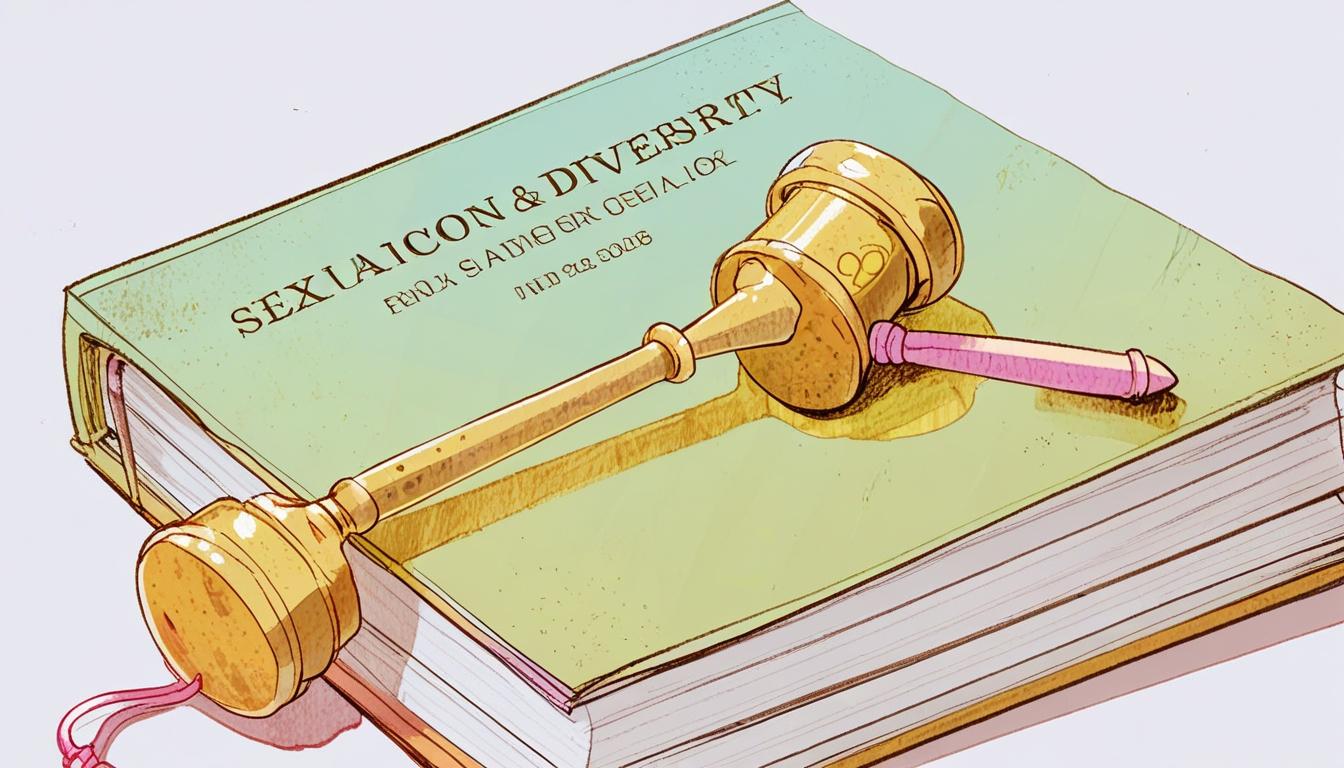In the closing days of the legislative session, the Indiana General Assembly approved significant and contentious legislation related to sex education and diversity initiatives within the state. Two key bills, Senate Bill 442 and Senate Bill 289, both sponsored by Republican Senator Gary Byrne of Byrneville, passed through the Senate and House before the session concluded on Thursday.
Senate Bill 442 focuses on the instruction of human sexuality in schools. The bill mandates that any materials used for teaching human sexuality to students in grades 4 through 12 must receive approval from the local school board and that the titles of these materials be publicly posted online for transparency. Additionally, the legislation requires elementary school students who participate in sex education lessons to watch a three-minute video displaying fetal development via ultrasound.
Earlier in the session, Senator Byrne had proposed removing a provision requiring teaching the importance of consent in sexual activity. However, after facing opposition, he reinstated this language, emphasising that consent would be taught "in an age-appropriate way" alongside education on fetal development during pregnancy. Byrne stated last Tuesday, “The primary goal of Senate Bill 442 is to promote transparency in sexual education curriculum by requiring that curriculum to be approved by school boards and posted publicly online.”
Despite its passage in the Senate with a 35-12 vote—the roll call split along party lines with Democrats and two Republicans opposing it—several Democratic senators expressed reservations. Senator J.D. Ford of Indianapolis welcomed the inclusion of consent but questioned the necessity of the ultrasound video requirement. Senator Shelli Yoder of Bloomington suggested that the concept of consent should extend beyond sexual activity between two individuals, saying, “I think what’s important here is we’re teaching young people to be able to have agency and sense of self and be able to make those determinations no matter what.” The bill was approved by the House on the same day, with a 72-20 majority.
The second bill, Senate Bill 289, addresses unlawful discrimination and restrictions on diversity, equity, and inclusion (DEI) efforts within state education and employment. The legislation prohibits discrimination in educational settings, public employment and licensing based on personal characteristics. Notably, the bill exempts employment actions relating to public contracts with minority, women’s, or veteran business enterprises if authorised by law.
The bill allows schools to base decisions about grants, scholarships or fee remissions on personal characteristics provided such awards do not involve state funds or resources. It also curtails state offices and universities from mandating employee training or licensing that endorses ideas suggesting inherent superiority or inferiority of individuals based on personal traits, collective blame for past actions, or moral character assumptions linked to such traits.
Senator Byrne defended the bill, saying, “You can’t fix discrimination with discrimination. This bill is good for Indiana, and everybody should be judged by how hard you work.” The legislation modifies certain scholarship provisions, specifically removing the word “minority” to limit eligibility to those residing in five specified “underserved” counties: Lake, Allen, Marion, St. Joseph, and Vanderburgh.
The bill sparked debate among Democrats who criticised the geographic restriction on scholarships and viewed the legislation as discriminatory. Senator Lonnie Randolph of East Chicago questioned the intent, stating, “It just doesn’t make sense that the supermajority would pass a bill that discriminates against most of the counties in the state.” Senator Yoder characterised the bill as a “culture war bill” that undermines support for minority students. Senator La Keisha Jackson of Indianapolis emotionally highlighted the historical context faced by Black Hoosiers and the importance of DEI, saying, “By eliminating DEI, we are limiting perspectives and ignoring the richness of our diverse state. Life is not black and white – there is nuance, and we must embrace the complexity that makes Indiana what it is.”
Senator Byrne responded by emphasising unity and character, clarifying, “I love every person for their personal characteristics... I do love every person, even on the other side. I don’t care what colour skin you are, it has nothing to do with it.”
The anti-DEI bill passed the Senate with a 34-16 vote and was approved by the House 64-26 on the final day of the legislative session.
Following the session’s conclusion, Senator Byrne issued a statement saying that he championed legislation to “promote educational curriculum transparency” and “prevent unlawful discrimination,” and expressed his openness to hearing from constituents on how to continue making Indiana “a better place to raise a family.”
The Chicago Tribune is reporting on these developments which mark significant legislative changes in Indiana’s education policy and state employment frameworks amid ongoing debates over curriculum content and diversity efforts.
Source: Noah Wire Services
